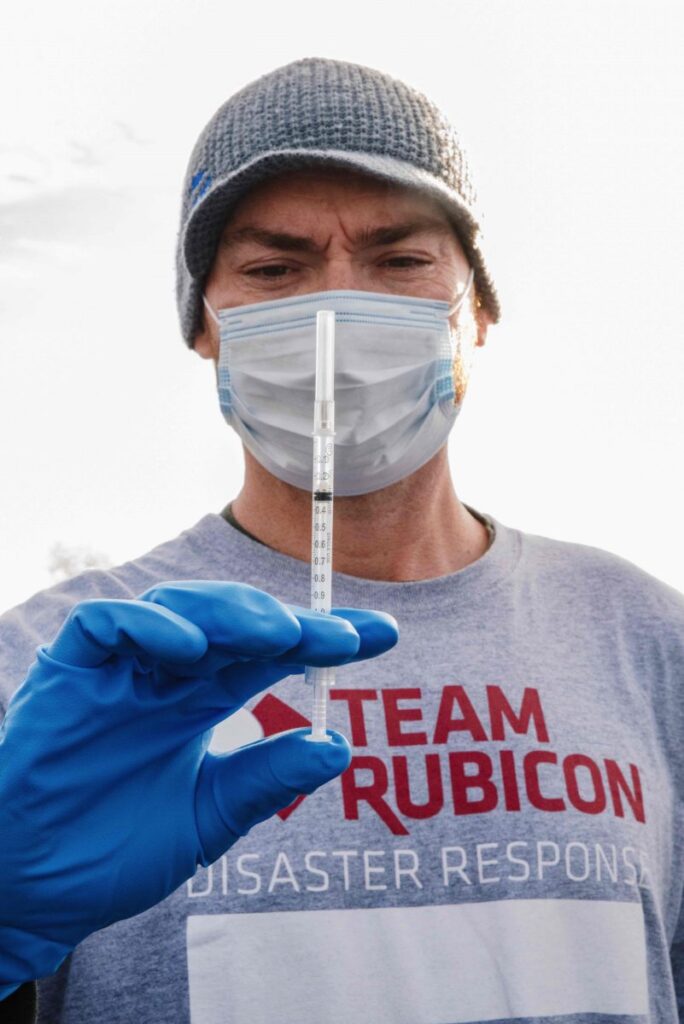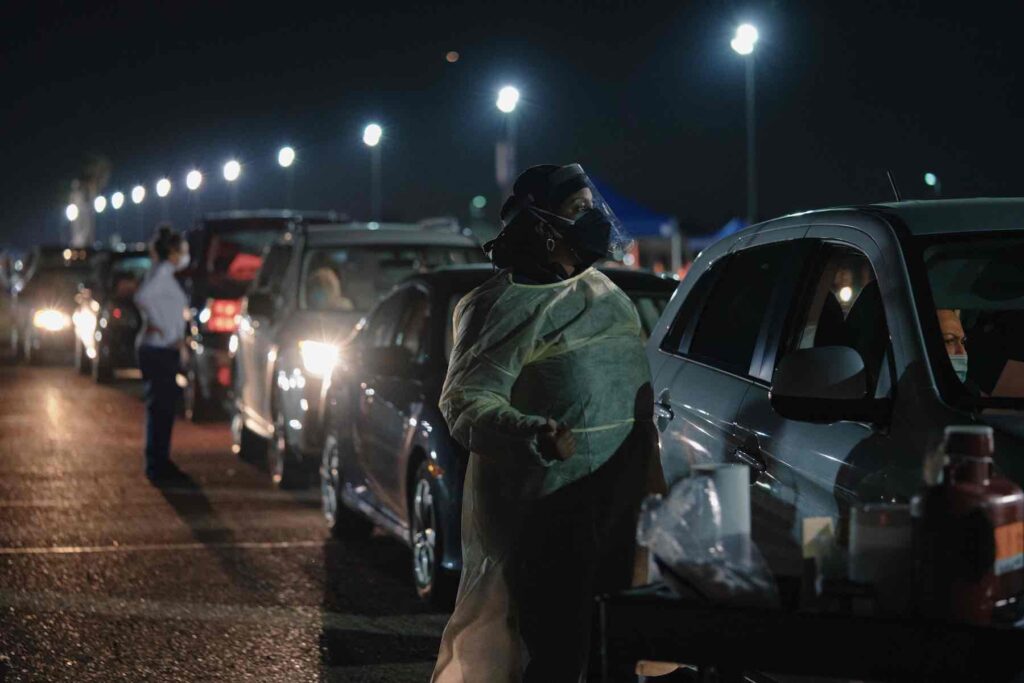Nearly 56 million doses of the COVID-19 vaccine have been distributed in the U.S., yet less than 34 million of those doses have been administered. From issues with getting those who want to be vaccinated registered to ensuring free flow of traffic or that there are enough caregivers on site to administer the vaccine, many states and communities have struggled with the practicalities of getting shots delivered.
Watching the nation struggle with a vaccination strategy and delivery, U.S. Navy veteran Art delaCruz, President and COO of the disaster relief non-profit Team Rubicon, thought there was a ready solution: veterans.

So, delaCruz and a handful of other veteran organizations began developing a solution. Together, the organizations—Team Rubicon, the Iraq and Afghanistan Veterans of America (IAVA), Student Veterans of America (SVA), Team Red, White & Blue, The Mission Continues, and Wounded Warrior Project—have more than a million veterans at their disposal. Unite, and they could mobilize that nationwide network of veterans to deliver vaccines anywhere from the inner city to the most rural outpost, ensuring equitable access to vaccinations to all Americans regardless of geographic or socioeconomic limitations. Calling veterans up to serve again could also ease the burden on health care agencies and communities attempting to vaccinate Americans.
On February 4, 2021, the organizations launched the Veterans Coalition for Vaccination. The VCV and its veteran volunteers will provide health departments, communities, and public agencies across the U.S. with the administrative, logistical, and operational support needed to stand up and maintain vaccination sites, can provide trained healthcare workers to supplement hospital staff, and will bring the volunteer personnel needed to execute details from managing registrations to administering the vaccine.
But why veterans? Because VCV members know that veterans not only place deep value on service to country, they also have the unique skills and expertise needed to run vaccination sites. Veterans, after all, understand process, the value of executing steps in checklists, and managing unexpected changes. They were indoctrinated in teamwork and shared efforts and focusing available resources to carry out a mission. Plus, given their extensive experience managing the logistics of moving everything from MREs to entire armies, military veterans would be the perfect resource for handling the logistics of running vaccination sites.

“Veterans won’t be the recipients of the vaccine, rather they are agents for the national imperative,” says delaCruz. “And I am confident that they are at the ready and, in a twist from being thanked for their service, we find veterans thankful to serve again at such a critical time.”
When VCV launched, it already had a handful of communities requesting the veterans’ assistance, with vaccination operations already begun and accepting more veteran volunteers in Chicago, Pima County, AZ, and Jefferson, WI. The Coalition’s veteran volunteers are eager to serve in America’s vaccination effort and hope to see those requests for assistance compound exponentially, and quickly.
“The fact that we could possibly be helping out with vaccines in my local community is absolutely just a huge shot in the arm for me,” says TJ Scheuerman, a Philadelphia paramedic and veteran of the U.S. Army National Guard. While Scheuerman is currently deployed to the Navajo Nation with Team Rubicon, he relishes the thought that he might be called up to help deliver vaccines in or near Philadelphia after he returns. “You know, in the past three months we’ve been seeing a huge uptick in COVID, especially in my local area, so I’m really hoping that this coalition might help bring us back to some sort of normalcy quicker.”




